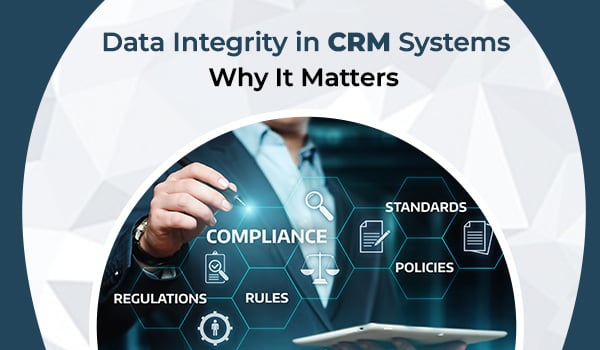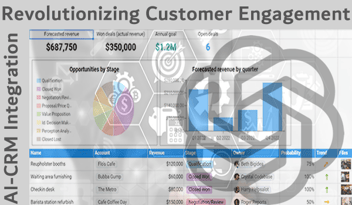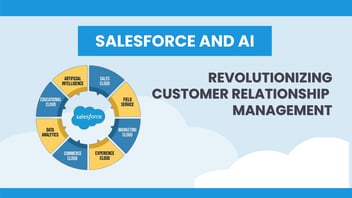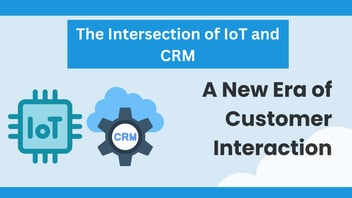Customer Relationship Management (CRM) systems have revolutionized the way businesses interact with their customers, transforming disjointed interactions into well-integrated customer journeys. Despite this revolution, the success of any CRM system hinges heavily on the quality of the data it holds. This is where the concept of 'Data Integrity' comes into play.
Understanding Data Integrity
Data integrity refers to the accuracy, completeness, and reliability of data stored in a system. In a CRM context, it means having customer data that is accurate, updated, and useful. Data integrity is vital to any CRM system because it directly impacts the insights drawn from the system and, in turn, decision-making processes.
Why Data Integrity Matters in CRM
1. Reliable Customer Insights: The primary function of a CRM system is to provide businesses with valuable insights into their customer behavior. When your CRM data lacks integrity, it can lead to incorrect insights, affecting your strategy and potentially leading to lost sales opportunities.
2. Enhanced Customer Experiences: Accurate data allows you to personalize interactions with customers, thus improving their experiences. For instance, a CRM system with high data integrity can accurately track a customer's past interactions, allowing for more personalized communication, which often results in enhanced customer satisfaction and loyalty.
3. Improved Decision-Making: CRM systems play a vital role in decision-making processes. With high data integrity, a CRM system can provide accurate reports and forecasts, helping business leaders make informed decisions.
4. Efficiency & Productivity: Incorrect or duplicate data can lead to wasted time and resources. High data integrity ensures that employees have access to accurate data, reducing time wasted on correcting errors and increasing overall productivity.
Maintaining Data Integrity in CRM Systems
Maintaining data integrity in CRM systems is not a one-time event; it is a continuous process. Here are some strategies to maintain data integrity:
1. Data Entry Standards: Implementing data entry standards can help avoid data duplication and errors. Consistency in data entry is crucial for data integrity.
2. Regular Audits: Regular data audits can help identify errors, discrepancies, and redundancies in the CRM data, which can then be rectified.
3. Employee Training: Employees need to understand the importance of data integrity and how to maintain it. Regular training can ensure they follow the best practices for data entry and management.
4. Use of Data Integrity Tools: There are several tools available that can help maintain data integrity by identifying and removing duplicate data, validating and correcting data, and more.
5. Integration of Systems: Many businesses use various systems in their operations. Integrating these systems with CRM can help reduce data duplication and errors.
Conclusion
In conclusion, data integrity is crucial for the successful implementation and operation of CRM systems. It influences the reliability
of customer insights, enhances customer experiences, aids in decision-making, and boosts productivity.
At CETDIGIT, we understand the importance of data integrity in CRM systems. We provide comprehensive CRM solutions, including Salesforce and HubSpot, that prioritize data integrity and ensure your CRM is a source of accurate and reliable customer information. With our assistance, businesses can leverage their CRM data to its full potential, from maximizing customer retention to optimizing sales funnels, thereby driving business growth.
Data Integrity in CRM Systems: Why It Matters

Popular Post
- Nostalgia Marketing’s Power with Millennials & Gen Z
- Sales and Sales Development in 2024: Why AI is a Must-Have for Growth
- SaaS Founder's Bible: The Rise, Fall, and Future of SaaS (2020-2025)- Part 1: Navigating Market Shifts
- CETDIGIT's Innovative Approach to Salesforce & HubSpot CRM Implementation
- What is Salesforce CRM?
Subscribe
Similar Blogs

Power of GPT Integration with CRM: Revolutionizing Customer Engagement
Businesses continue to work on the best way possible to optimize customer engagement and refine...
READ MORE
Salesforce and AI: Revolutionizing Customer Relationship Management
Harnessing the Power of AI in CRMIntroduction:The integration of Artificial Intelligence (AI) into...
READ MORE
The Intersection of IoT and CRM: A New Era of Customer Interaction
The Internet of Things is a network of interconnected gadgets that collect, transmit, and process...
READ MORE
Leave a Comment